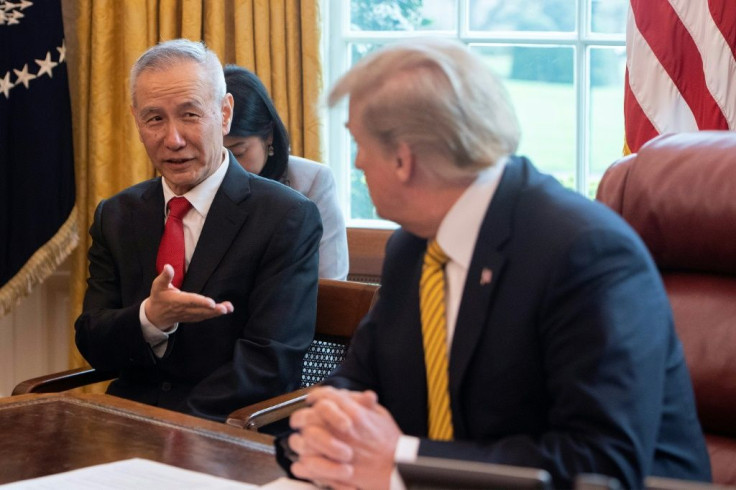US-China Trade Talks Update: Beijing Not Willing To Talk Industrial Policy Reform

Chinese Vice Premier Liu He reportedly plans to bring a trade offer to Washington when high-level trade talks begin later this week, but the offer will not include industrial policy reforms or changes in government subsidies – two key areas cited by U.S. officials as necessary for any trade pact.
Talks are to begin Thursday involving Liu, U.S. Trade Representative Robert Lighthizer and U.S. Secretary of State Steven Mnuchin. President Trump has said he is not interested in just working out an agricultural deal and would prefer no deal to a “bad deal.” In advance of the high-level talks, 30 Chinese officials led by Vice Finance Minister Liao Min arrived for two days of advance talks.
“So long as the U.S. requires China address the core structural issues at the heart of the U.S. concerns, including changes to China's industrial policy, coupled with an enforcement mechanism to ensure China undertakes those changes, there will be no agreement. This is not a win-win, which is what China requires,” said Steven Okun, senior adviser at McLarty Associates.
“If as we get closer to the 2020 election there is a downturn in the U.S. economy, then the U.S. would be more likely to accept an agreement that focuses simply on tariff reduction. But we are not there yet.”
U.S. tariffs of 30% are scheduled to kick in next week on $250 billion worth of Chinese goods, up from 25%.
The 15-month-old trade war is weighing on U.S. businesses. The National Association for Business Economics’ October outlook survey predicts the gross domestic product will fall to less than 2% next year for the first time since 2016, largely because of trade policy.
As Monday’s meetings got underway, the Agriculture Department reported more soybean exports to China. The White House issued a statement Monday saying the talks will focus on forced technology transfer, intellectual property rights, services, non-tariff barriers, agriculture and enforcement.
Liu told visiting dignitaries in Beijing he would not be offering a solution to the U.S. administration’s demands for reforms. In April, Trump said the two sides were close to agreement but that fell apart when the last round of trade talks collapsed in May.
Since then there have been increasing signs the U.S. economy is slowing and political turmoil has roiled Washington as Democrats ramp up their impeachment investigation.
Jude Blanchette, an expert on China’s elite politics at the Center for Strategic and International Studies, told Bloomberg Chinese leaders see the impeachment discussion as weakening Trump’s negotiating position.
“Their calculation is that Trump needs a win,” he said.
China has its own political crisis in Hong Kong where demonstrators are refusing to yield to efforts by Beijing to exert more control.
© Copyright IBTimes 2025. All rights reserved.






















